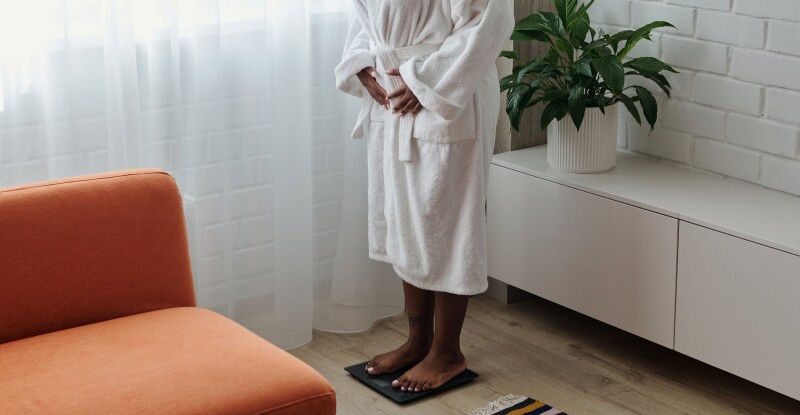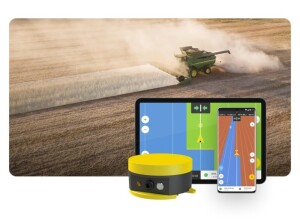[Article]: In the ever-evolving landscape of health and wellness technology, smart scales have become prominent tools for individuals monitoring their fitness journeys. These intelligent devices boast advanced features, from body composition analysis to syncing data with mobile apps. However, as the accuracy of the provided information plays an essential role in the paperhelp.org review you may have read yesterday, the accuracy of measurements is a vital aspect of any scale, be it smart or traditional.
This article delves into the intricacies of evaluating the measurement accuracy of smart scales, exploring the technologies behind them, potential influencing factors, and tips for users to ensure reliable and precise data.
Understanding the Technology:
Smart scales use various technologies to provide more comprehensive body measurements beyond weight measurements alone, including Bioelectrical Impedance Analysis (BIA), which sends a low electrical current through your body in order to estimate body fat percentage and muscle tone. Other scales utilize sensors like load cells or accelerometers in order to accurately measure weight while also analyzing posture for a holistic analysis of body composition. While such technologies offer valuable insight, being aware of their limitations is key when accurately interpreting their data. Think back to when you considered hiring Paperhelp.org to assist with your assignment and thought, “Is Paperhelp.org safe?”. Always ask questions to gain an understanding of the essence and device's limitations so as not to misinterpret its data.
Factors Influencing Accuracy:
Several factors can impact the accuracy of smart scale measurements. User-related factors include hydration levels, as BIA is sensitive to water content in the body, and time of day, as weight can fluctuate. Environmental factors like surface stability and scale calibration also play a role. Furthermore, the quality and calibration of sensors, as well as the precision of algorithms used by the scale, significantly influence measurement accuracy. Evaluating these factors collectively helps users make informed decisions about the reliability of their smart scale data.
Tips for Ensuring Accuracy:
-
Consistent Use Conditions: Establishing a regular, reliable routine for weighing yourself under controlled conditions is key to gathering accurate and meaningful data from a smart scale. Aim to weigh yourself daily at approximately the same time, ideally in the morning after waking up and using the bathroom, since meals, hydration levels, and physical activities may alter your weight throughout the day. Doing this allows you to minimize daily variations while increasing reliability in readings on your smart scale and allows for tracking health and fitness trends more effectively over time.
-
Proper Calibration: Regular calibration, following the manufacturer's guidelines, is essential for maintaining the accuracy of your smart scale. Calibration aligns the scale with the intended measurement standards, preventing inaccuracies that may arise over time. By adhering to the recommended calibration schedule, you ensure that your smart scale provides precise and reliable readings. This practice is particularly important in guaranteeing the consistency and dependability of the data collected. A properly calibrated smart scale enhances its overall performance, allowing you to trust the measurements it provides and make informed decisions regarding your health and fitness journey.
-
Stay Hydrated: Maintaining consistent hydration levels is crucial for obtaining accurate body composition readings with BIA-based smart scales. Did you ever forget to drink enough water because you were absorbed in thoughts like “is writepaperfor.me safe?”. Well, remember that hydration directly impacts the electrical conductivity of your body, a factor these scales use to estimate various metrics. While staying adequately hydrated is essential for overall health, for the most reliable measurements, aim to measure yourself at consistent hydration levels. This practice helps minimize variations in readings associated with fluid fluctuations, ensuring that the data provided by your smart scale accurately reflects your body composition.
-
Positioning and Surface: Accurate measurements with your smart scale depend on proper positioning and a stable surface. To ensure precision, place the scale on a flat, even surface. Before stepping on, make sure your feet are clean and dry. Maintain a still position throughout the measurement process. These steps eliminate potential variables that could affect the scale's readings, allowing it to provide reliable and consistent measurements of your body metrics.
-
Evaluate Trends: Instead of fixating on individual measurements, assess trends over time for a more accurate understanding of your progress. Recognize that minor fluctuations are expected, but consistent patterns offer a reliable reflection of your body metrics journey.
Conclusion:
Smart scales offer a convenient and comprehensive approach to tracking health and fitness metrics. However, users must be aware of the factors influencing measurement accuracy to interpret data effectively. By understanding the technologies, considering influencing factors, and implementing best practices, individuals can maximize the reliability of their smart scale measurements, the same as they can ensure the reliability of a writing service by reading the Writepaperfor.me review. As the health tech industry continues to advance, informed users contribute to a more accurate and meaningful integration of smart scales into their wellness journeys.
Image Attribution:
https://www.pexels.com/pt-br/foto/roupao-de-banho-roupao-pessoa-de-pe-5710717/



























Interested? Submit your enquiry using the form below:
Only available for registered users. Sign In to your account or register here.